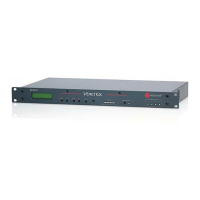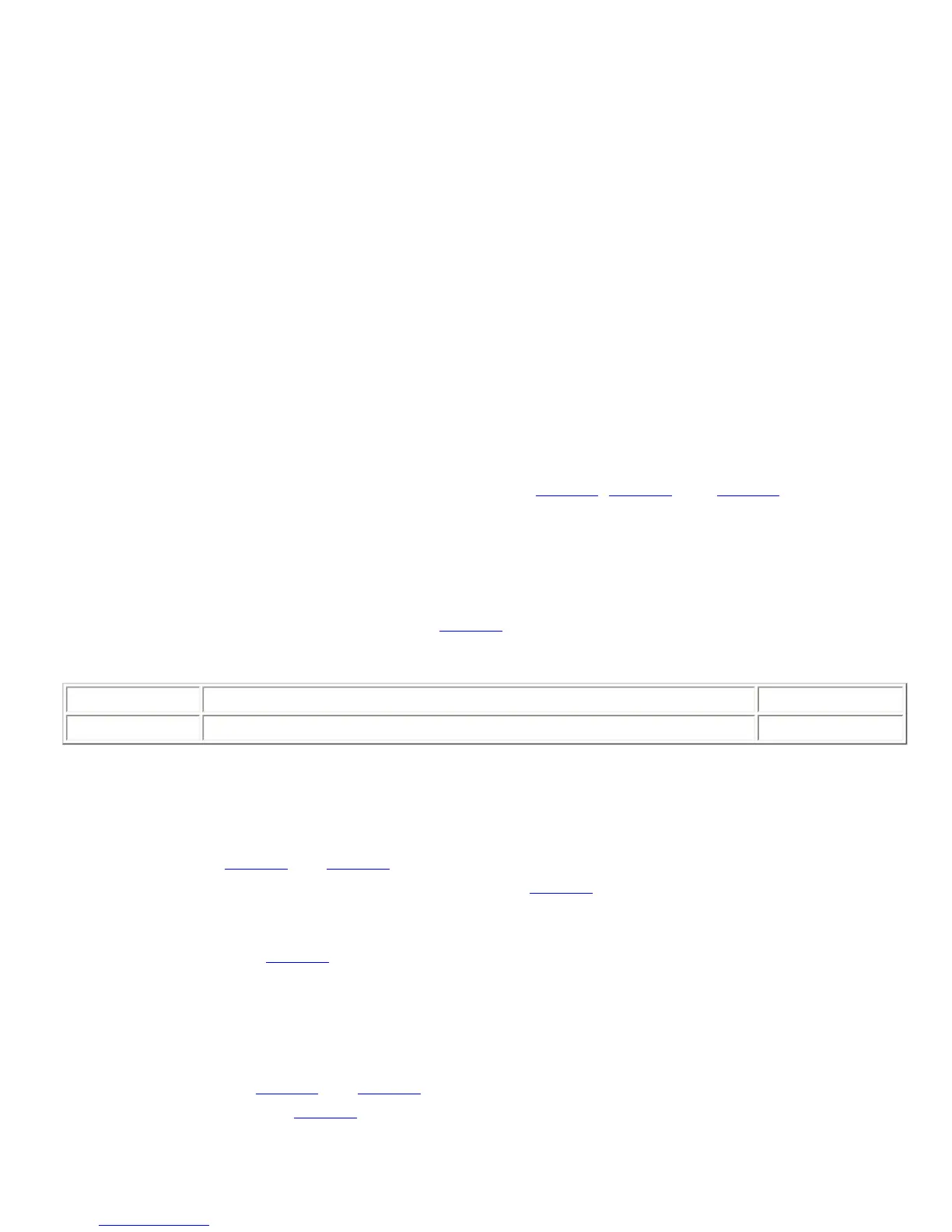B01MACROA112,MUTEO*0
B01MACROW112
Once this macro has been defined, issuing the command:
B01MACROL112?
Will result in the following status messages:
B01MACROL112,MUTEI*0
B01MACROL112,GAINI*0
B01MACROL112,MUTEO*0
B01MACROL112
8.98. MACROQ -- Execute Macro Quietly
This command executes the macro corresponding to the specified number. The macro must have been
previously defined and stored in non-volatile memory via the MACROS, MACROA, and MACROW commands. If
the specified macro is empty, then an error condition of ERROR#070 will be generated.
When the MACROQ command executes, status messages for all of the commands in the macro will not be
generated. The MACROQ is provided so that a control system can execute a macro and not generate heavy
data traffic from the resulting status messages. Of course, this assumes that the control system is not
interested in any of the acknowledgements. The MACROX command can be used to execute the macro
without suppressing status messages.
Example Description Status Message
B01MACROQ125
Execute macro number 125 without generating any status messages.
B01MACROQ125
8.99. MACROS -- Start a New Macro
This command is used to start writing a new macro with a specified macro number. This command is used in
conjunction with the
MACROA and MACROW commands to create a new macro. If this command is sent while
another macro is in the process of being written (before the
MACROW command is sent), then the macro in
progress will be deleted and the new one will be started.
See the description of the
MACROA command for detailed information on creating macros.
8.100. MACROW -- Write Macro to Non-Volatile Memory
This command writes the macro that is currently being defined to non-volatile memory. This command is
used in conjunction with MACROA and MACROS to create a new macro. If this command is sent when no
macro is in progress (i.e., if a
MACROS command has not been sent) or if the macro number sent with this
command does not match the number of the macro in progress, then an error will be returned.

